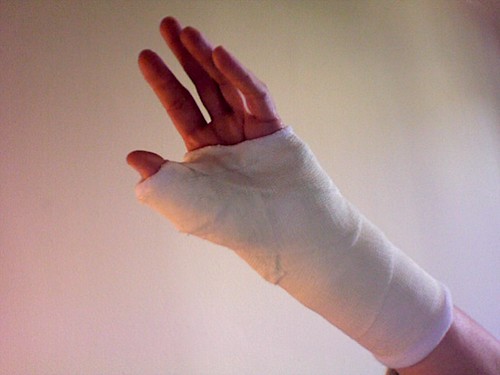Suffering an injury can be a real shock, regardless of whether you have been hit by another car, slipped in the street or had an accident at work.
But even after you get over the initial reaction, you could be left with not just physical pain but emotional distress as well as loss of earnings. It is therefore worth considering making a personal injury claim to get what you are entitled to receive.
Here are some of the key facts which you should know.
What counts as a personal injury claim?
Although some types of claim are more common that others, a case for personal injury can be considered if you have had an accident which was caused by another individual or company’s negligence or breach of duty.
This could include incidents which occur whilst working, either in or out of the workplace, a road traffic accident or even walking down the street. The key factor is that another party is to blame for causing the accident, and it was not solely due to carelessness or lack of attention on your part.
What do you have to prove?
In personal injury claims, the burden of proof is on the injured party, not the defendant. In other words, you have to be able to show that not only did you have an accident but also that it was the defendant’s fault.
For this reason, witnesses are crucial to the success of a case and having a reliable witness can help bring a claim to a fruitful conclusion. The integrity of the injured party is also key to a successful case. An individual who is perceived as honest and believable by the judge is more likely to be viewed sympathetically and be awarded compensation.
You will also need to show that the defendant owed you a duty of care which was breached. In some cases this is simple, such as when employer/employee claims are being considered or those which involve a doctor and a patient. However, you will still need to be able to demonstrate how a less than reasonable level of care was provided. Some cases revolve around a statutory duty not being fulfilled.

The process for claiming
Once you have instructed a solicitor – the sooner, the better – they will submit a formal letter of claim to the defendant.
In the UK, solicitors are obliged to abide by the Protocol for Personal Injury Claims which means the defendant must be allowed up to three months to investigate the case. Although an acknowledgement must be sent to the claimant’s solicitors within three weeks, the defendant can take the full three months before deciding whether to either admit or deny liability.
If the defendant denies liability, the case could possibly end up in court. However, even if liability is admitted, the case could take some time to settle, especially if the extent of the injuries or the permanency is not yet established. The claimant can expect to undergo a medical examination, possibly more than once, and be asked to provide access to their medical records.
How is compensation assessed?
As a general rule, the amount of compensation awarded is split into two sums, general damages and special damages.
General damages relates to pain and suffering as well as any loss of facilities endured as a result of the accident. There is no defined range of compensation per injury type but the judge must consider amounts which have been awarded in the past. This is known as ‘precedent’.
Special damages are calculated based on loss of financial earning, past and future, as well as additional expenditure. Proof of income will be required, and as damages are paid on a tax-free basis, it is the net figures which are used. The courts will consider expert opinions about how your injuries may impact you in the future and include this potential loss in your award.
Conclusion
The thought of making a personal injury claim may be daunting. There are plenty of experts available who can guide you through every step of the process. Try the Birketts Norwich Office and receive professional advice and support from qualified Solicitors. If you have been unlucky enough to suffer as a result of an accident that wasn’t your fault, it is only fair that you should be compensated so you don’t end up out of pocket. Anything less wouldn’t be justice.
Image Credits: dinogirl and erikenmieke.
